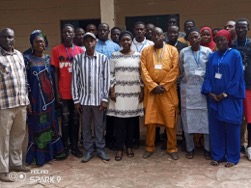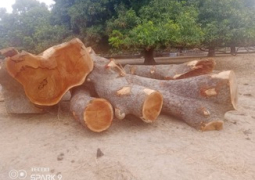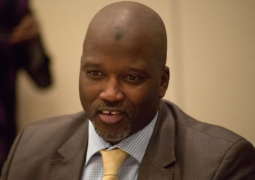
Dr Jarra Jagne, who currently works at Cornell University in United States of America (USA), made this observation at the official opening of a three-day training of twenty-five poultry farmers held at the Department of Livestock Services (DLS) at Abuko on Monday 9 January 2022.
According to her, many Gambians are enthusiastic about starting poultry farming but lack the requisite skills, knowledge and capital to venture into it. She said poultry farmers must possess vast knowledge on nutrition and diseases that affect poultry in order to become successful in poultry farming.
“For me I just feel bad that a lot of people are just losing their monies just because they don't have the necessary knowledge,” she said. “These are the kind of knowledge I am going to impart to the farmers during this training."
She added: "There are lots of people who are interested in poultry with lots of enthusiasm but we (Gambia) still don't have basic infrastructures for good poultry industry; so, a lot of poultry coming into the country are imported from the USA and Brazil. We (poultry farmers) are not yet at the point where they can ask government to stop the importation of poultry because the local people are not producing enough."
The leading Gambian veterinarian also observes that quality feed and feed processing plants are also among the challenges poultry farmers go through in the country, stressing that The Gambia needs poultry feed processing plants as a driving force for poultry production in the country.
Dr Jagne further observed that poultry breeds imported into The Gambia from USA and Europe could better be substituted with breeds that are more adaptable to our local climate, hinting that such breeds can be source out from other countries such as Egypt, Bangladesh and India.
She acknowledged the challenges confronting local poultry farmers amid the importation of frozen chicken into the country that are cheaper in terms of pricing, saying that poultry farmers can diversify their market through production of guinea fowl that has similar taste with chicken and much easier to raise in sub-Saharan Africa.
Remarking on the issue, Dr Kebba Daffeh, a private consultant partnering with Dr Jarra Jagne, described the three-day capacity building training dubbed “Strengthening the poultry value chain in The Gambia” as very important to the development of the poultry industry in the country.
According to him, the training is part of the MSDG programme under the Diaspora Development Grant (DDG) meant to build the capacity of twenty-five poultry farmers and also another set of twenty-five (25) students. The training, he said, is being undertaken to build the capacity of poultry farmers, as the sector remains one of the most important sectors in the country and second only to fisheries, with fish being the most important source of protein for many families in the country.
Dr Daffeh also observed that the problem with poultry farming in the country is lack of capacity as many Gambians entering the poultry industry lack technical capacity, adding that their capacity building programme is envisaged to help close the capacity gap in the poultry industry in the national quest to propel the industry to another level.
He said the training would accord both students and the poultry farmers a new set of knowledge in many areas such as postmortem and pathology, bio-security (keeping birds safe from diseases), adding that disease prevention is key to poultry farming as proper bio-security measures will ensure birds are free from diseases.
The local consultant for the training also noted that participants would be trained on business aspect of poultry and how they can manage and make their businesses profitable. “A well managed poultry is one of the most lucrative businesses one may venture into,” he said. "I think this is one of the most important training that these farmers will receive anywhere in the country."
Read Other Articles In Headlines
Over 6, 000 beneficiaries receive cash transfers in CRR, NBR
Aug 4, 2022, 12:02 PM




